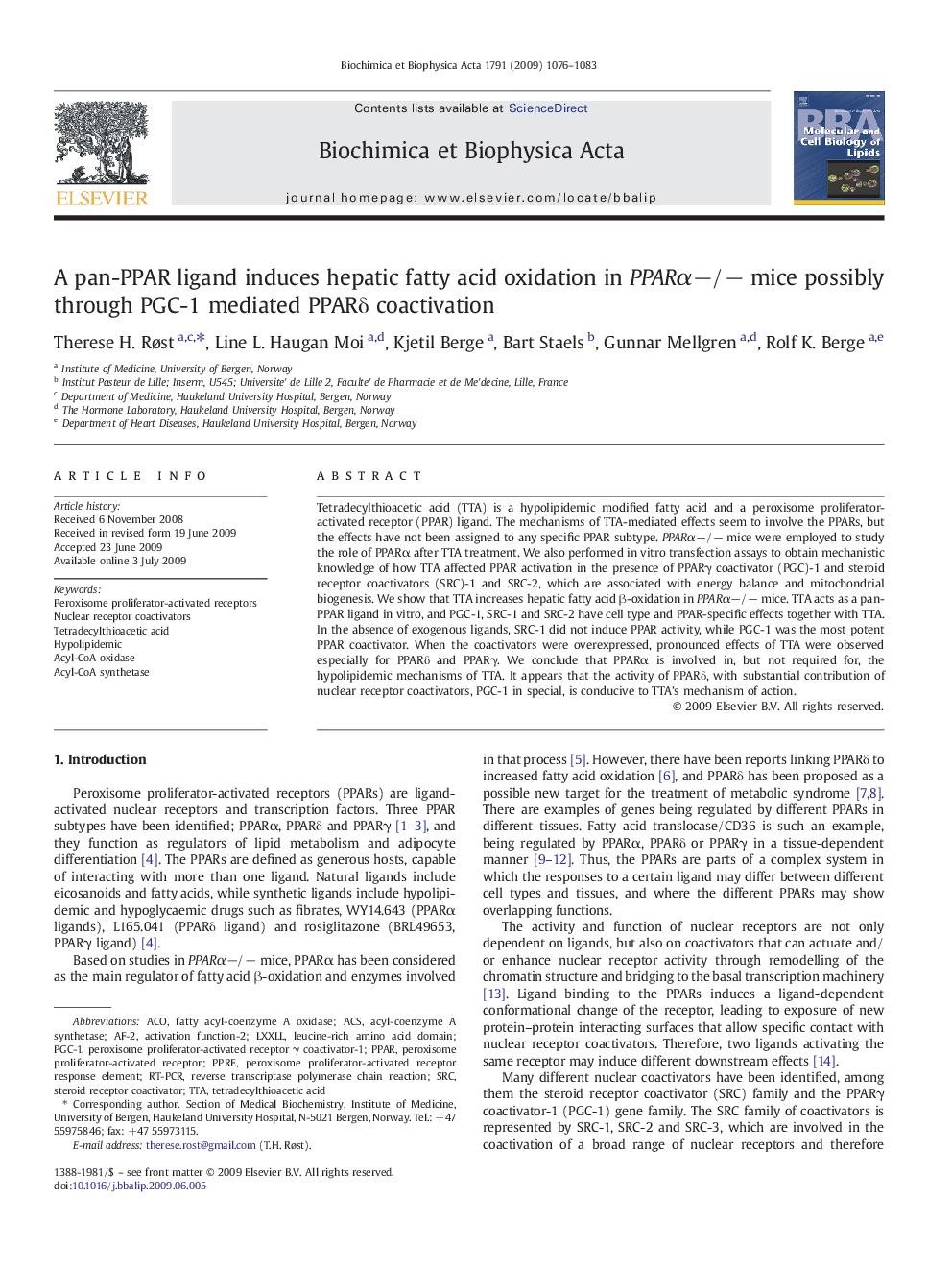| Article ID | Journal | Published Year | Pages | File Type |
|---|---|---|---|---|
| 1949726 | Biochimica et Biophysica Acta (BBA) - Molecular and Cell Biology of Lipids | 2009 | 8 Pages |
Abstract
Tetradecylthioacetic acid (TTA) is a hypolipidemic modified fatty acid and a peroxisome proliferator-activated receptor (PPAR) ligand. The mechanisms of TTA-mediated effects seem to involve the PPARs, but the effects have not been assigned to any specific PPAR subtype. PPARαâ/â mice were employed to study the role of PPARα after TTA treatment. We also performed in vitro transfection assays to obtain mechanistic knowledge of how TTA affected PPAR activation in the presence of PPARγ coactivator (PGC)-1 and steroid receptor coactivators (SRC)-1 and SRC-2, which are associated with energy balance and mitochondrial biogenesis. We show that TTA increases hepatic fatty acid β-oxidation in PPARαâ/â mice. TTA acts as a pan-PPAR ligand in vitro, and PGC-1, SRC-1 and SRC-2 have cell type and PPAR-specific effects together with TTA. In the absence of exogenous ligands, SRC-1 did not induce PPAR activity, while PGC-1 was the most potent PPAR coactivator. When the coactivators were overexpressed, pronounced effects of TTA were observed especially for PPARδ and PPARγ. We conclude that PPARα is involved in, but not required for, the hypolipidemic mechanisms of TTA. It appears that the activity of PPARδ, with substantial contribution of nuclear receptor coactivators, PGC-1 in special, is conducive to TTA's mechanism of action.
Keywords
RT-PCRTetradecylthioacetic acidLXXLLHypolipidemicAcyl-coenzyme A synthetaseacyl-CoA oxidasePGC-1TTAPPARAF-2SRCACOACSacyl-CoA synthetasePPREactivation function-2peroxisome proliferator-activated receptor response elementreverse transcriptase polymerase chain reactionsteroid receptor coactivatorperoxisome proliferator-activated receptorPeroxisome proliferator-activated receptors
Related Topics
Life Sciences
Biochemistry, Genetics and Molecular Biology
Biochemistry
Authors
Therese H. Røst, Line L. Haugan Moi, Kjetil Berge, Bart Staels, Gunnar Mellgren, Rolf K. Berge,
